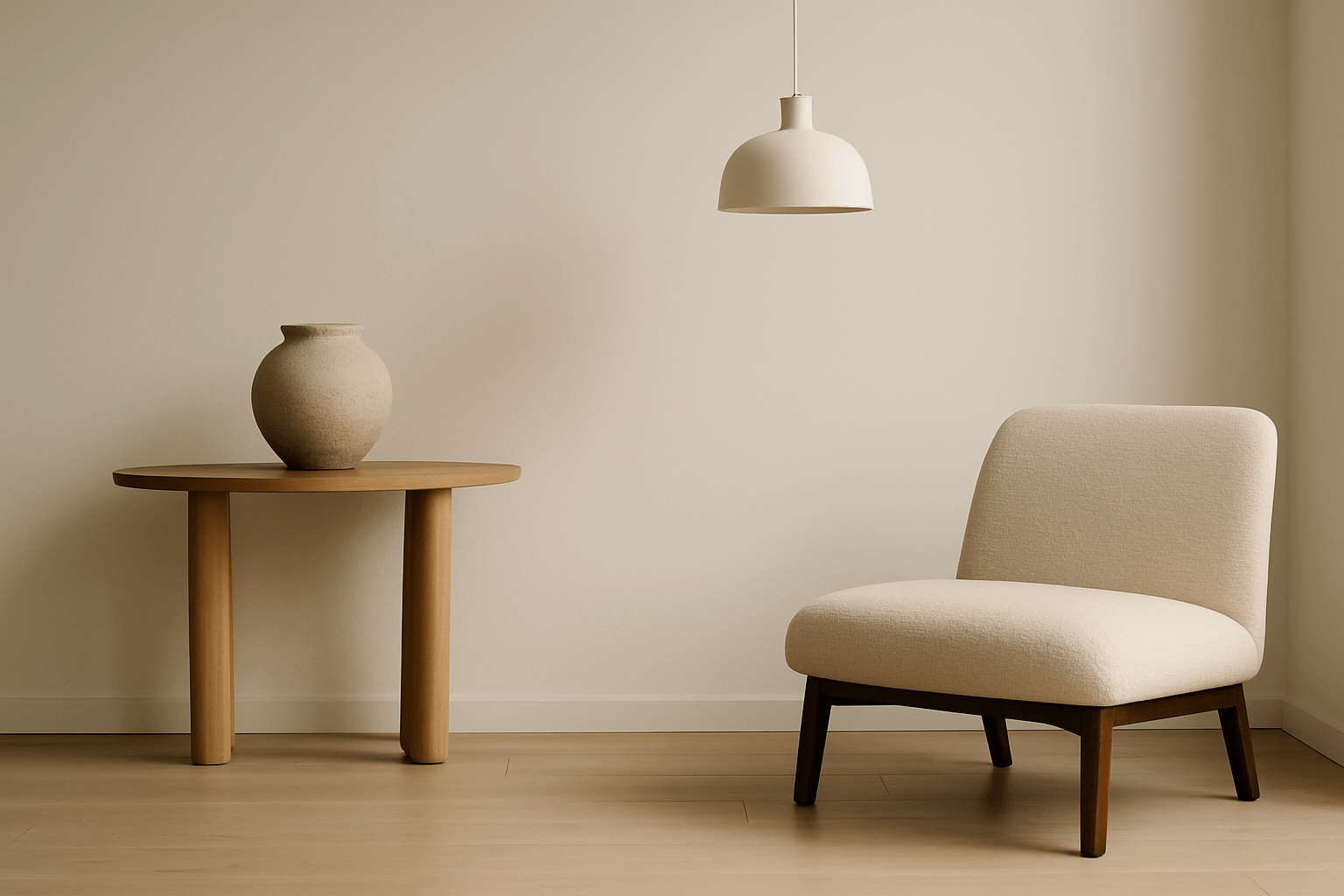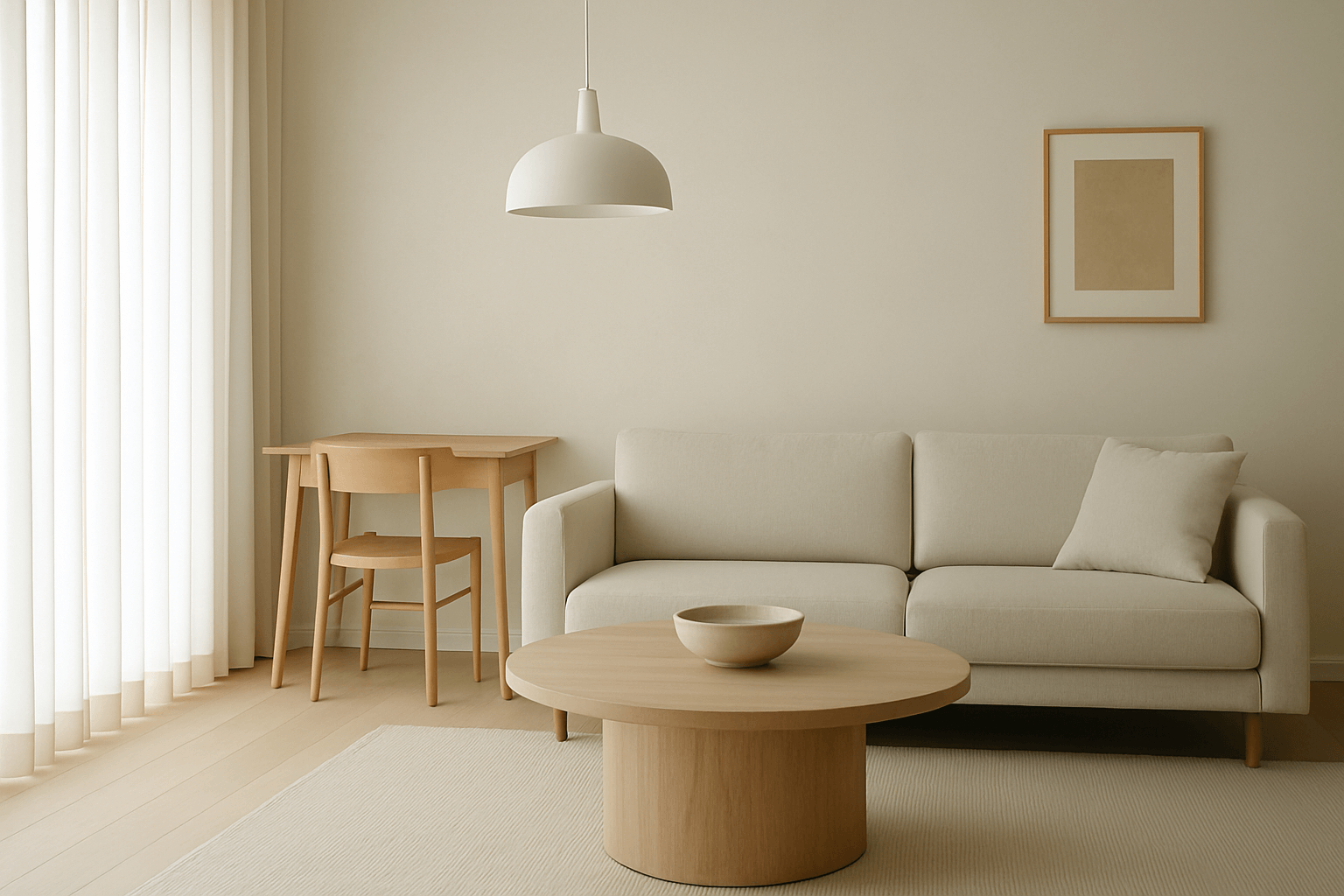Bigger Doesn’t Mean Clutter — It Can Mean Clarity
In minimalist interiors, less is more — but that doesn't mean everything should be small. In fact, larger-scale items often make minimalist rooms feel more elevated, grounded, and serene.
The secret is using scale with intention — choosing fewer pieces, making them larger, and letting them breathe.
1. Small Items Add Up (Visually)
A room filled with many small objects can feel:
-
Busy
-
Fragmented
-
Visually scattered
Even if it’s not physically cluttered, the eye constantly jumps from one small thing to the next — creating a sense of unease.
Minimalism swaps quantity for presence.
2. Large-Scale Pieces Anchor a Room
A single, oversized item can become:
-
A focal point
-
A source of calm
-
A functional statement
Think:
-
A low, wide coffee table
-
A generously sized light fixture
-
An oversized framed print on a clean wall
-
A deep armchair that invites pause
These give the room structure and character — without the need for more.
3. Scale and Negative Space Go Hand in Hand
When a large piece is placed in a minimal space, it emphasizes the emptiness around it — and the emptiness gives it power.
That negative space isn’t “empty.” It’s:
-
Breathing room
-
A visual pause
-
A way to direct focus
This balance is what gives minimalist interiors their sense of peace and precision.
4. Choose Weight Over Noise
Bigger doesn’t mean louder. A large piece in a neutral tone, natural texture, or soft form still feels calm.
Tips:
-
Use curved or softened shapes to prevent visual heaviness
-
Stick to natural materials (wood, linen, wool)
-
Let light fall across surfaces — don’t crowd them with objects
The goal isn’t to overwhelm — it’s to ground.
5. “Better” Means Thoughtful
The final part of the equation — fewer, larger, better — is about intentional selection.
Before you bring in anything oversized, ask:
-
Does this align with how I use this space?
-
Will this reduce my need for smaller, filler items?
-
Does this feel timeless, or trendy?
Better doesn’t mean perfect. It means aligned — with your values, your routines, and your space.
Final Thought
Minimalist design is about simplicity — but not smallness.
When you choose fewer, larger, better pieces, you give your home clarity, confidence, and calm.
Big, when done well, is beautifully minimal.
















